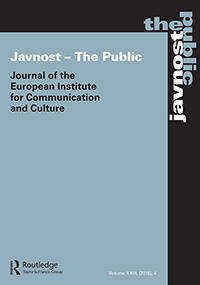
Media independence is a contested concept that carries different meanings in different contexts.
As a normative ideal, independence can be discussed on many levels, and media organisations, journalists, researchers and regulators often invoke the term in contradictory ways.
In contemporary European media policy, the conceptual contestation over the meaning of independence has been further reheated by commercial media’s attempts to reframe the distinction between commercial and public service media as a choice between “independent” and “state” media.
The digital transformations and the emergence of new media actors and platforms also challenge the meaning and relevance of different conceptions of media independence and dependence. In this article, tha authors discuss the changing uses of the notion of independence in current media policy discourse, including controversies between public service and commercial media, but also other settings where the notion is invoked. We then develop a more fine-tuned understanding of the different dimensions that media independence contains in a contemporary media environment. Finally, we discuss how the relational nature of independence makes it problematic to employ as a normative principle in media policy.
Tags: Public broadcasting Media freedom Media pluralism TransparencyThe content of this article can be used according to the terms of Creative Commons: Attribution-NonCommercial 4.0 International (CC BY-NC 4.0) . To do so use the the wording "this article was originally published on the Resource Centre on Media Freedom in Europe" including a direct active link to the original article page.

